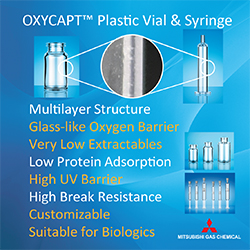Novartis' Kymriah Receives EC Approval as First CAR-T Cell Therapy for Adults With Relapsed or Refractory Follicular Lymphoma
Novartis recently announced the European Commission (EC) has approved Kymriah (tisagenlecleucel), a CAR-T cell therapy, for the treatment of adult patients with relapsed or refractory (r/r) follicular lymphoma (FL) after two or more lines of systemic therapy. The approval follows a positive opinion in March by the Committee for Medicinal Products for Human Use (CHMP) of the European Medicines Agency (EMA) and is applicable to all 27 European Union member states plus Iceland, Norway and Liechtenstein. This approval marks the third indication for Kymriah and makes it the first CAR-T cell therapy approved in the EU for these patients, which include those with r/r FL grade 1, 2 and 3A.
“When follicular lymphoma fails to respond to treatment or comes back, it is typically more aggressive and difficult to treat; patients often end up cycling through multiple lines of therapy with decreasing benefit,” said Catherine Thieblemont, MD, PhD, Professor of Hematology in the Paris VII- University, France and Head of the Hemato-Oncology Unit of St-Louis Hospital in Paris. “The approval of Kymriah in Europe brings patients closer to a potentially definitive therapy, providing us hope for improved outcomes.”
The approval is based on the global Phase II ELARA trial showing that 86% of patients who were treated with Kymriah had a response, including 69% who had a complete response (CR). Prolonged durable response to treatment was demonstrated with an estimated 87% of patients who achieved a CR still in response at or more than nine months after initial response. In the trial, 94 infused patients were evaluated for efficacy with a median follow-up of approximately 21 months.
Among 97 patients evaluable for safety, the safety profile of Kymriah was remarkable. Cytokine release syndrome (CRS) was reported in 50% of patients after Kymriah infusion, and no Grade 3 or 4 events were reported, as defined by the Lee scale. Neurological adverse reactions occurred in 9% of patients (1% were Grade 3 or 4) within 8 weeks after Kymriah infusion. Severe infections (Grade 3 or 4) occurred in 16% of patients.
“With this approval, we are pleased to be able to offer this transformative therapy to more people across the globe living with this advanced blood cancer,” said Marie-France Tschudin, President, Innovative Medicines International & Chief Commercial Officer, Novartis. “With long-lasting responses and a safety profile that allows for flexible administration, we are striving to rewrite cancer survival and alleviate the burden of this disease for patients and the healthcare system.”
In addition to r/r FL, Kymriah is approved for the treatment of pediatric and young adult patients up to and including 25 years of age with B cell acute lymphoblastic leukemia (ALL) that is refractory, in relapse post-transplant or in second or later relapse, and adult patients with r/r diffuse large B cell lymphoma (DLBCL) after two or more lines of systemic therapy.
As part of the unique Novartis strategy to pursue four cancer treatment platforms – radioligand therapy, targeted therapy, immunotherapy and cell and gene therapy – we strive for cures through cell therapies in order to enable more patients to live cancer-free. We will continue to pioneer the science and invest in our manufacturing and supply chain process to further advance transformative innovation.
Novartis was the first pharmaceutical company to significantly invest in pioneering CAR-T research and initiate global CAR-T trials. Kymriah, the first approved CAR-T cell therapy, developed in collaboration with the Perelman School of Medicine at the University of Pennsylvania, is the foundation of the Novartis commitment to CAR-T cell therapy.
We have made strong progress in broadening our delivery of Kymriah, which is currently available for use in at least one indication in 30 countries and at more than 370 certified treatment centers, with clinical and real-world experience from administration to more than 6,900 patients. We continue to pioneer in cell therapy, leveraging our vast experience to develop next-generation CAR-T cell therapies. These therapies will utilize our new T-Charge platform being evaluated to expand across hematological malignancies and bring hope for a cure to patients with other cancer types.
Novartis is reimagining medicine to improve and extend people’s lives. As a leading global medicines company, we use innovative science and digital technologies to create transformative treatments in areas of great medical need. In our quest to find new medicines, we consistently rank among the world’s top companies investing in research and development. Novartis products reach nearly 800 million people globally and we are finding innovative ways to expand access to our latest treatments. About 108,000 people of more than 140 nationalities work at Novartis around the world. For more information, visit https://www.novartis.com.
Total Page Views: 742













